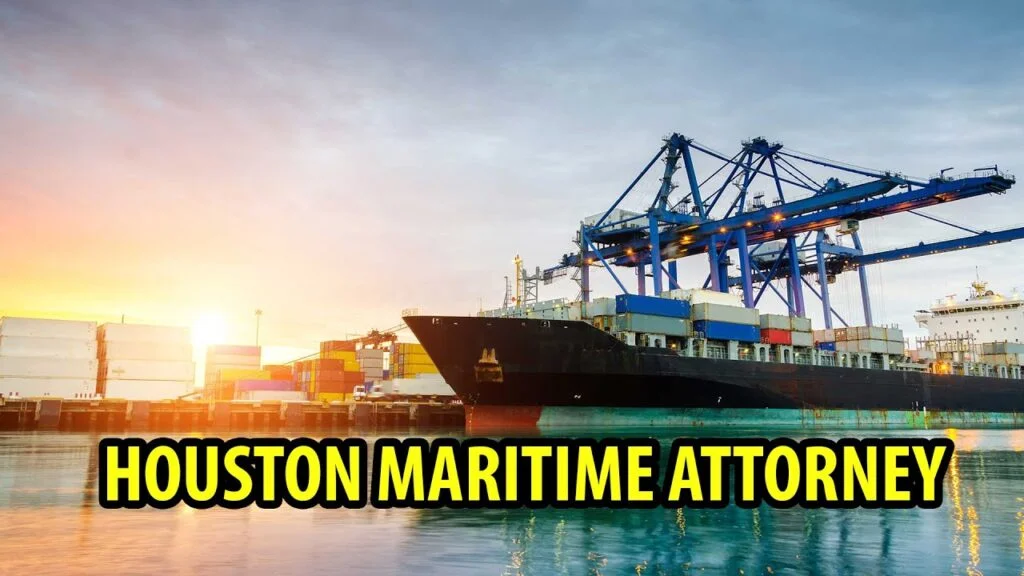Understanding Maritime Law
Maritime law, also known as admiralty law, is a specialized field that governs nautical issues and private maritime disputes. It is a unique body of law that deals with a range of matters including marine commerce, navigation, shipping, sailors, and the transportation of passengers and goods by sea. Given the complexity and specificity of maritime law, having a Houston maritime attorney who is well-versed in this area is crucial for anyone involved in maritime activities.
The Role of a Houston Maritime Attorney
A Houston maritime attorney provides legal representation and advice to individuals and businesses involved in maritime activities. These legal professionals handle a variety of cases, including but not limited to:
- Personal Injury Claims: Maritime workers, such as seamen and dockworkers, are exposed to hazardous conditions. A maritime attorney helps injured workers claim compensation under laws like the Jones Act, which provides protections for seamen injured due to employer negligence.
- Cargo Disputes: Issues often arise regarding the damage or loss of cargo. Maritime attorneys represent shippers, carriers, and insurers in resolving these disputes.
- Environmental Compliance: Maritime activities are subject to stringent environmental regulations. Attorneys ensure compliance with laws such as the Clean Water Act and represent clients in environmental litigation.
- Contractual Disputes: Contracts are fundamental to maritime operations. Attorneys draft, review, and litigate maritime contracts, including charter parties, bills of lading, and salvage agreements.
Key Laws in Maritime Law
Several key laws govern maritime activities. Understanding these laws is essential for anyone involved in maritime operations:
The Jones Act
The Jones Act is a federal statute that protects American seamen by allowing them to seek damages from their employers for injuries sustained on the job. This law is crucial for maritime workers who face dangerous conditions at sea.
The Longshore and Harbor Workers’ Compensation Act (LHWCA)
The LHWCA provides compensation to longshoremen, harbor workers, and other maritime employees who are injured while working on navigable waters or in adjoining areas. This act ensures that these workers receive medical care and financial support during their recovery.
The Death on the High Seas Act (DOHSA)
DOHSA provides compensation to the families of maritime workers who die as a result of wrongful acts, neglect, or default occurring on the high seas. This law is essential for providing financial relief to families who have lost a loved one in a maritime accident.
General Maritime Law
General maritime law, also known as admiralty law, encompasses a wide range of legal principles and precedents established by courts over centuries. It includes doctrines such as maintenance and cure, which obligate shipowners to care for injured seamen, and principles of liability for maritime accidents.
Choosing the Right Houston Maritime Attorney
Selecting the right maritime attorney is critical for ensuring effective legal representation. Here are some key factors to consider:
Experience and Expertise
Maritime law is complex and requires specialized knowledge. Look for attorneys with extensive experience in maritime cases and a deep understanding of maritime laws and regulations. Their expertise will be invaluable in navigating the intricacies of your case.
Reputation and Track Record
Research the attorney’s reputation and track record. Client testimonials, case outcomes, and professional accolades can provide insight into their effectiveness and reliability. A reputable attorney will have a history of successful case resolutions and satisfied clients.
Communication and Availability
Effective communication is essential in legal matters. Choose an attorney who is responsive and available to answer your questions and provide updates on your case. Clear and consistent communication will help you stay informed and involved throughout the legal process.
Resources and Support
Maritime cases can be resource-intensive, often requiring expert testimony, extensive research, and thorough investigation. Ensure that the attorney has the necessary resources and support staff to handle your case efficiently and effectively.
Common Maritime Injuries and Legal Remedies
Maritime workers face numerous risks and hazards in their line of work. Common injuries include:
- Slips and Falls: Wet and slippery decks can lead to serious slip and fall accidents, resulting in fractures, sprains, and head injuries.
- Equipment Accidents: Malfunctioning or improperly maintained equipment can cause severe injuries, including amputations, crush injuries, and burns.
- Exposure to Hazardous Substances: Maritime workers may be exposed to hazardous chemicals and substances, leading to respiratory issues, skin conditions, and long-term health problems.
Legal Remedies for Injured Maritime Workers
Injured maritime workers have several legal remedies available to them, including:
- Jones Act Claims: Seamen can file claims under the Jones Act to seek compensation for injuries caused by employer negligence. This can include damages for medical expenses, lost wages, pain and suffering, and more.
- Maintenance and Cure: Injured seamen are entitled to maintenance and cure, which provides daily living expenses and medical care until they reach maximum medical improvement.
- Unseaworthiness Claims: Workers can file claims if a vessel is deemed unseaworthy, meaning it is not fit for its intended use or is inadequately maintained, leading to injury.
Steps to Take After a Maritime Injury
If you are injured in a maritime accident, taking the following steps can help protect your rights and strengthen your case:
Document Everything: Keep detailed records of the incident, including photographs, witness statements, medical records, and any communication with your employer.
Seek Immediate Medical Attention: Your health and safety are the top priority. Seek medical attention promptly and follow all treatment recommendations.
Report the Incident: Notify your employer or supervisor about the accident and injury as soon as possible. Ensure that the incident is documented in an official report.



